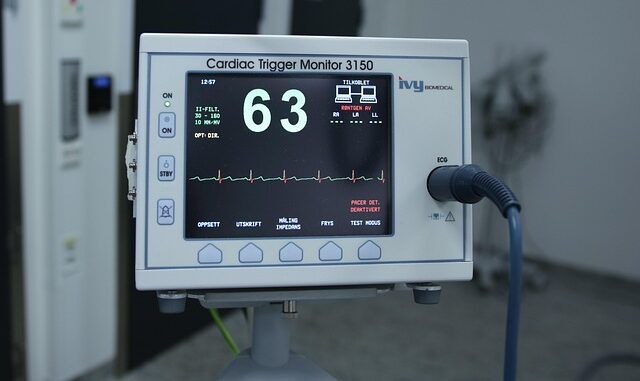
Summary
Philips and Mass General Brigham have partnered to revolutionize patient care using real-time AI. This collaboration aims to integrate live data from various medical devices and sources, creating a unified platform for enhanced clinical decision-making. The initial focus will be on cardiac care, with potential expansion to other areas.
See how TrueNAS offers real-time support for healthcare data managers.
** Main Story**
Philips and Mass General Brigham: A New Chapter for AI in Healthcare
It’s no secret: healthcare data is a mess. Information silos, incompatible systems… it’s a real headache for clinicians. But what if we could break down those walls and provide doctors with a clear, real-time view of their patients? Well, Philips and Mass General Brigham (MGB) are teaming up to do just that, and honestly, it’s pretty exciting.
This partnership aims to leverage the power of artificial intelligence (AI) to revolutionize patient care. The goal? To create a unified ecosystem that integrates data from all sorts of sources, from electronic medical records (EMRs) to live feeds from medical devices. As a result, this collaboration seeks to enhance clinical decision-making, improve operational efficiency, bolster patient safety, and accelerate medical research.
Taming the Data Beast: A Tech Upgrade
Think about it: Doctors are constantly bombarded with information, static EMRs, disjointed clinical notes, alarms going off from different machines. It’s overwhelming, and it makes it difficult to get a complete picture of what’s going on with a patient in real time. And that’s the problem that needs solving.
The Philips-MGB initiative is tackling this issue head-on by integrating data from ventilators, monitors, lab results, and EMRs.
Philips is bringing its tech expertise to the table, using its software platforms to build a data infrastructure that can handle massive amounts of real-time data. The Philips Capsule Medical Device Information Platform will be key for integrating data from various devices. Furthermore, Philips Clinical Insights Manager will allow for retrospective analysis, and Philips Capsule Surveillance will use algorithms to generate smart alerts for clinical use.
On the other hand, MGB provides their clinical experience, biomedical engineering skills, and the expertise of their AI business unit. This ensures that the AI algorithms developed are not only technically sound but also clinically relevant and easily integrated into existing workflows. It’s important to remember that technology alone isn’t the answer; you need the clinical know-how to make it truly effective.
Real-World Impact: How This Improves Patient Care
So, how will this actually improve patient care? Here’s a breakdown:
- Smarter Decisions: Clinicians gain access to a comprehensive, real-time view of the patient’s health, allowing for quicker, more informed treatment decisions. It’s like giving them a superpower.
- More Efficient Workflows: Data-driven insights streamline processes, optimize resource allocation, and reduce the administrative burden on healthcare professionals. Think fewer late nights and less paperwork, and more time focusing on the patient.
- Safer Patients: By continuously monitoring and analyzing patient data, the system can identify potential risks and trigger proactive interventions to prevent adverse events. This can literally be a lifesaver.
- Faster Research: The unified dataset will fuel medical research and drive innovation in patient care. Who knows what breakthroughs this could lead to?
Cardiac Care in the Spotlight
The initial focus will be on a research program that uses real-time data from patients undergoing continuous heart monitoring. The idea is to improve the early detection of cardiac events and other critical health issues, allowing for timely interventions and potentially improving patient outcomes. I remember a situation where a colleague’s father was having a heart problem and early detection made all the difference, this is a big deal. The insights from this research will then be used to expand the platform to other clinical areas.
Looking Ahead
This collaboration, as of today, is a testament to the ongoing innovation in medical technology, paving the way for a future where healthcare is more proactive, personalized, and effective.
Ultimately, the Philips-MGB partnership represents a significant leap towards realizing the full potential of AI in healthcare. So what does the future hold? Only time will tell, but it’s safe to say that AI is poised to play an increasingly important role in shaping the future of medicine.


The integration of real-time data from diverse medical devices offers a promising path toward predictive analytics in cardiac care. How might these AI-driven insights be translated into proactive, personalized interventions that extend beyond the hospital setting?
That’s a great question! Taking those AI-driven insights outside the hospital is key. Perhaps through wearable tech that provides continuous monitoring and personalized recommendations, or even integrating AI with telehealth services for remote patient management. This could truly revolutionize preventative care!
Editor: MedTechNews.Uk
Thank you to our Sponsor Esdebe